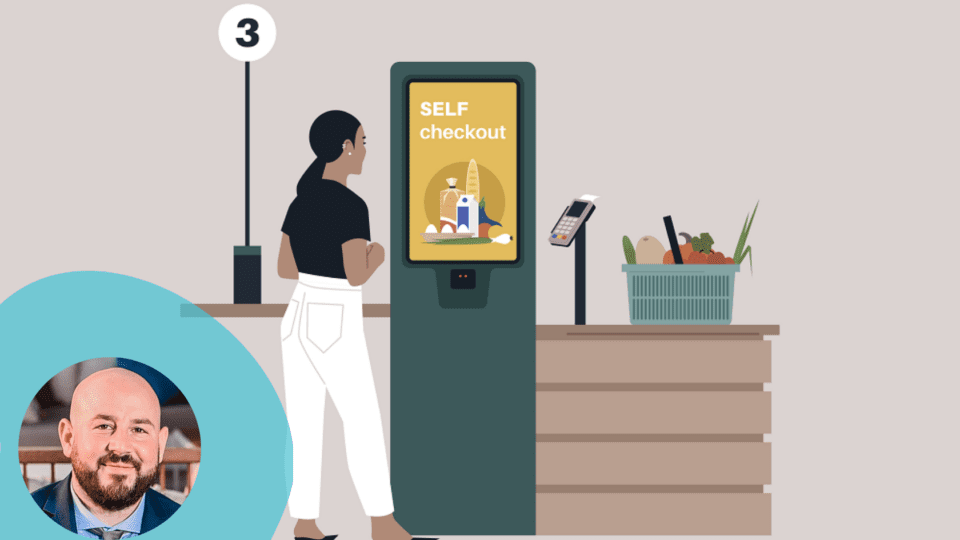For retailers, self-checkout is something of a double-edged sword. There’s no doubt the technology can bring tremendous benefits, such as allowing more customers to pay at the same time, thus reducing wait times without having to staff additional cashier stations. Moreover, customers seem very receptive to self-checkout, with 73% noting that it feels much faster than a traditional cashier. Additionally, 85% of Gen Z consumers use self-checkout when available, driven largely by the convenience factor.
Retailers looking to maximize their investments in these systems must avoid giving customers any excuse to not use them — including poor performance (speed and availability). Rock-solid performance is key if self-checkout systems are going to achieve widespread adoption.
But the harsh reality — and another significant drawback — is that self-checkout systems break down often. According to one survey, an astonishing 67% of shoppers said they’d experienced a failure at the self-checkout lane. If a retailer cannot ensure near-perfect performance for its self-checkout systems, any potential efficiency benefits may be undercut, as slow and unreliable systems may alienate customers and actually create the need for expensive IT talent.
Data Overload
What makes the performance of self-checkout systems so hard to monitor is, ironically, the enormous amount of log data these systems generate. Log data is external data that reflects the internal health of a system or application, and it’s used to identify and fix rapidly growing hotspots in order to keep self-checkout systems humming along smoothly. Amassed across hundreds or even thousands of individual store locations, today’s log data volumes are growing so large that they’re actually becoming impossible for retailers to get their arms around. There’s simply too much data to wade through in order to quickly derive any useful meaning.
So when an issue with a self-checkout system occurs, the first step is often a call from an individual retail location to the retailer’s IT team. From there, that team goes to work manually digging through troves of data collected across their locations to identify the source of the problem. It’s a rigorous, complicated and lengthy process. In the meantime, customers are becoming frustrated and checkout lines at the store are getting longer.
We can all agree that this pace of data growth isn’t going to slow down any time soon, and that’s why a new approach is needed. Rather than pooling data from all stores in a central repository, log data should be automatically analyzed as it’s being created, at its point of origin in individual retail locations. In doing so, the individual retail store can automatically detect any potential issues or growing hotspots as they are occurring.
If there is a warning or error, the self-checkout system itself — not a frazzled employee — can alert the IT department automatically. Technical experts can then catch and remediate the issue early, in most cases before system performance begins to degrade. This is the only way to get a handle on the data deluge; it must be broken into smaller, bite-sized chunks.
There are many benefits to be gained from self-checkout system implementations, which is why it’s not surprising that the global market is expected to show a 16% CAGR between now and 2030. Clearly, these devices are here to stay, even though they have a few kinks. One thing that retailers can do immediately to maximize their investments is adjust their approach to better harnessing and leveraging log data, with the ultimate goal of improving system uptime and speed.
While achieving near-perfect performance is always a lofty goal, doing so for self-checkout systems is within reach, if retailers take advantage of the tools and techniques at their disposal today for better managing data.
Ozan Unlu is the CEO and Founder of Edge Delta, an edge observability platform. Previously he served as a Senior Solutions Architect at Sumo Logic, a Software Development Lead and Program Manager at Microsoft and a Data Engineer at Boeing. Unlu holds a BS in nanotechnology from the University of Washington.




